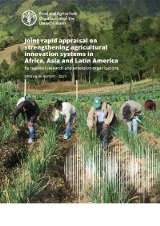Publications
Highlights

FAO Science and Innovation Strategy
10/2022
The Strategy aims to strengthen FAO’s work on science and innovation by providing Organization-wide guidance, coherence and alignment on science and innovation. Science and innovation serve as a foundation for the FAO Strategic Framework 2022–31 and have cross-sectoral relevance across the Organization’s programme of work.
.tmb-th600x450.jpg?Culture=en&sfvrsn=e3cb27e_11)
The Action Plan 2022–2025 for the implementation of the FAO Science and Innovation Strategy
10/2023
The FAO Science and Innovation Strategy Action Plan (2022-25) provides a common framework for FAO action at the country, sub-regional, regional and global levels. The FAO Science and Innovation Strategy is a tool to support the delivery of the FAO Strategic Framework 2022–31 and hence the 2030 Agenda for Sustainable Development. The Strategy’s Action Plan is a living document covering four years (2022–25), and it will be updated, as needed, to reflect new needs, opportunities and challenges.
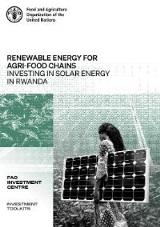
Renewable energy for agrifood chains
07/2021
This report presents a structured approach to identify and estimate the market size of specific renewable energy technologies that have the potential to be deployed across specific stages of the agri-food chains. More specifically, the methodology first analyses the countries’ value chains and aggregates them into similar agri-food groups when possible.
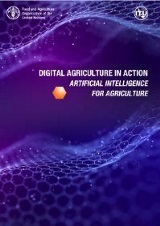
Digital agriculture in action
06/2021
This publication on artificial intelligence (AI) for agriculture is the fifth in the E-agriculture in Action series, launched in 2016 and jointly produced by FAO and ITU. It aims to raise awareness about existing AI applications in agriculture and to inspire stakeholders to develop and replicate the new ones.
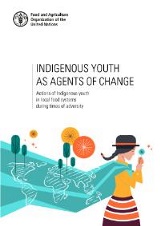
Indigenous youth as agents of change
06/2021
The following publication "Indigenous youth as agents of change - Actions of Indigenous youth in local food systems during times of adversity" highlights six initiatives from Indigenous youth in regions around the world who are leading innovative solutions and collaborations in the face of adversity brought about by climate change and exacerbated by the ongoing COVID-19 pandemic.
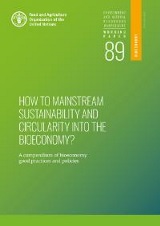
How to mainstream sustainability and circularity into the bioeconomy?
05/2021
In its 2020 communiqué, the International Advisory Council on Global Bioeconomy has urged to strengthen good practices and policies to advance the global bioeconomy. The transition from a fossil-based economy to a bioeconomy happens at three levels: technological, organizational and social.
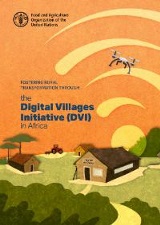
Fostering rural transformation through the Digital Villages Initiative (DVI) in Africa
05/2021
FAO has launched the corporate programme with the goal of converting globally at least 1 000 rural localities into digital village hubs in which a variety of ICT-based services will be offered. The Digital Villages Initiatives (DVI) is an integrated development vision that enshrines digitalisation at the core of rural transformation and prosperity...
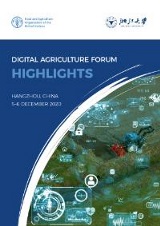
Digital Agriculture Forum – Highlights
01/2021
The report is a summary of the main points addressed and conclusions formulated during the annual Digital Agriculture Forum (DAF) 2020 which was co-organized by FAO and Zhejiang University on 5-6 December 2020.
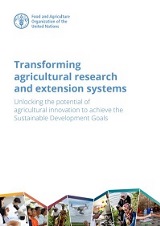
Transforming agricultural research and extension systems. Unlocking the potential of agricultural innovation to achieve the Sustainable Development Goals (2020)
02/2020
Agricultural research and extension systems are central to unlock the potential of agricultural innovation and achieve sustainable development goals. Public agricultural research, extension and advisory services are essential for increasing productivity and promoting sustainable agricultural growth and alleviating poverty.
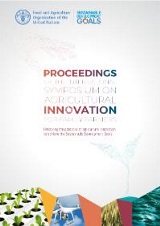
Proceedings of the International Symposium on Agricultural Innovation for Family Farmers - Unlocking the potential of agricultural innovation to achieve the Sustainable Development Goals (2019)
01/2020
Agricultural research and extension systems are central to unlock the potential of agricultural innovation and achieve sustainable development goals. Public agricultural research, extension and advisory services are essential for increasing productivity and promoting sustainable agricultural growth and alleviating poverty.
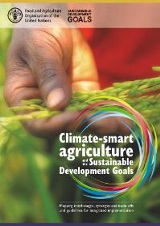
Climate-smart agriculture and the Sustainable Development Goals
12/2019
The United Nations 2030 Agenda for Sustainable Development with its 17 Sustainable Development Goals (SDGs) and 169 targets presents a universally accepted and comprehensive framework addressing all aspects and dimensions of sustainability.
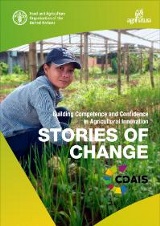
Stories of change: Building competence and confidence in agricultural innovation
10/2019
This book tells stories. Stories from very many people. Stories of change – triggered by this complex project, Capacity Development for Agricultural Innovation Systems (CDAIS). The stories relate to changes. Personal change. Organizational change. Changes in attitudes. Changes in practice. They tell of improvements in livelihoods.
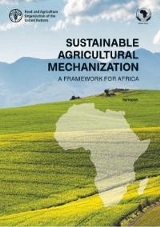
The Sustainable Agricultural Mechanization: A Framework for Africa (SAMA)
06/2019
The Sustainable Agricultural Mechanization: A Framework for Africa (SAMA) was developed in response to a request by the African Union (AU) and endorsed by the AU Specialized Technical Committee (STC) on Agriculture, Rural Development, Water and Environment meeting in October 2017.
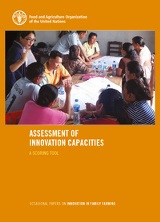
Assessing innovation capacities: a scoring tool
03/2017
Capacity development interventions in support of agricultural innovation are more effective when based on systematic and participatory assessments of existing skills and capacity needs. Recognizing that, an instrument has been developed in the context of the Capacity Development for Agricultural Innovation Systems (CDAIS) project.
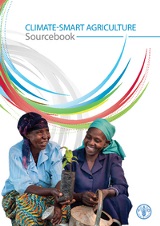
Climate-Smart Agriculture Sourcebook
09/2013
The purpose of the sourcebook is to further elaborate the concept of CSA and demonstrate its potential, as well as limitations. It aims to help decision makers at a number of levels (including political administrators and natural resource managers) to understand the different options ....

